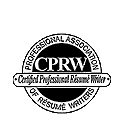Click HERE to go directly to the original article or read it below.
Is “To whom it may concern” the kiss of death?By rachel zupek on Jan 19, 2010 in Career Advice, Featured, Job Search, Resume
Most job seekers know that, whenever possible, it’s best to address your cover letter to the person who has the power to hire you — or at least the person who can bring you in for an interview.
But, all too often, if a name isn’t listed on a job posting, the job seeker resorts to an old-fashioned salutation like, “To Whom It May Concern.” What they don’t know, is that this approach can sometimes be considered the kiss of death.
Impersonal salutations like “Dir Sir/Madam” or “To Whom It May Concern,” show an employer two things. The first is that you lack the initiative to locate the appropriate contact; the second is that you show a disregard for any research needed to be done on your part. In short, employers will think you’re lazy and your cover letter will end up in the trash.
One of the most common questions we get is how to find the name of a hiring manager, particularly at a large company. Here are four ways to find out the addressee of your cover letter:
1. Read the job posting
A no-brainer, but still needs to be mentioned. Sometimes you’ll get lucky, and the job you want to apply for will list a contact right in the posting. But even then, you sometimes need to dig a little deeper. Say, for example, the listed contact is “Chris Smith.” You don’t know if Chris is a man or a woman. If you can’t find that out, it’s safe to address your letter “Dear C. Smith.” That way, you’ve made it personal, but you haven’t offended anyone.
2. Call the company
3. Look on the Internet
4. Ask your personal contacts
You: “Hey, do you happen to know of anyone who works at ABC Company?
Contact: “Actually, I used to work there five years ago.”
You: “Really? I’m applying for a position there. Do you know how who I might report to?”
Or maybe the conversation goes like this:
You: “Hey, do you happen to know of anyone who works at ABC Company?”
Contact: “I don’t, but I know my colleague worked there before coming to work with us .”
You: “Really? Do you think I could have his or her name to see if they can help me find out who to send my application materials to?”
You get the picture. The bottom line is everybody knows someone — you just never know until you ask.
If you try all of these methods and you’re still coming up short, Wendy Enelow and Louise Kursmark, co-authors of “Cover Letter Magic” and two of the nation’s most reputable career coaches, examine a few possible salutations and a few key points to remember about each one.
- Dear Sir/Madam. All-purpose and inoffensive, although it might be perceived as stodgy and old-fashioned.
- To Whom It May Concern. Another standard; has the downside of being impersonal and old-fashioned.
- Dear Hiring Executive (or Hiring Committee). Formal, but appropriate.
- Dear Human Resources (or Human Resources Representative). Acceptable only if you’re writing to a “blind ad” that lists only a P.O. box and you cannot call to get a specific individual’s name.
- Dear Hiring Authority. Acceptable only if, despite your best efforts, you have been unable to uncover the name of the non-HR person to whom you’re sending your résumé.
- Good Morning (or Good Day). A bit more up-to-date, but it reminds us of junk-mail greetings that try (unsuccessfully) to be personal.
- Re: Job Title You’re Applying For (leaving off a specific salutation). A useful method for replying to want ads, when you truly don’t know to whom you are sending your résumé. We think it’s preferable to the “Dear Human Resources” greeting.
- No Salutation (begin your letter immediately after the inside address). Again, perfectly acceptable for want-ad replies. Might be considered an improvement over old-fashioned, nonspecific greetings.
Editor’s note – 2/16/2010: We appreciate all the comments our readers are leaving. To gauge more hiring manager opinions, we took this debate to the hiring managers themselves on our FaceBook page for Employers: http://www.facebook.com/CBforEmployers The verdict so far? It’s not a deal breaker. While using general addresses are not deal breakers, the lesson, however, is to make sure you personalize your cover letter as much as possible when you can because the more you can do to catch a hiring manager’s attention, the better!
Ramsey Penegar is an executive resume consultant and is certified as a professional resume writer by the Professional Association of Resume Writers. She has developed more than 575 resumes for executives all over the United States and for international clients as well. With more than 10 years experience in marketing and sales, she has the skills to build effective job search marketing campaigns and attention-getting resumes.









